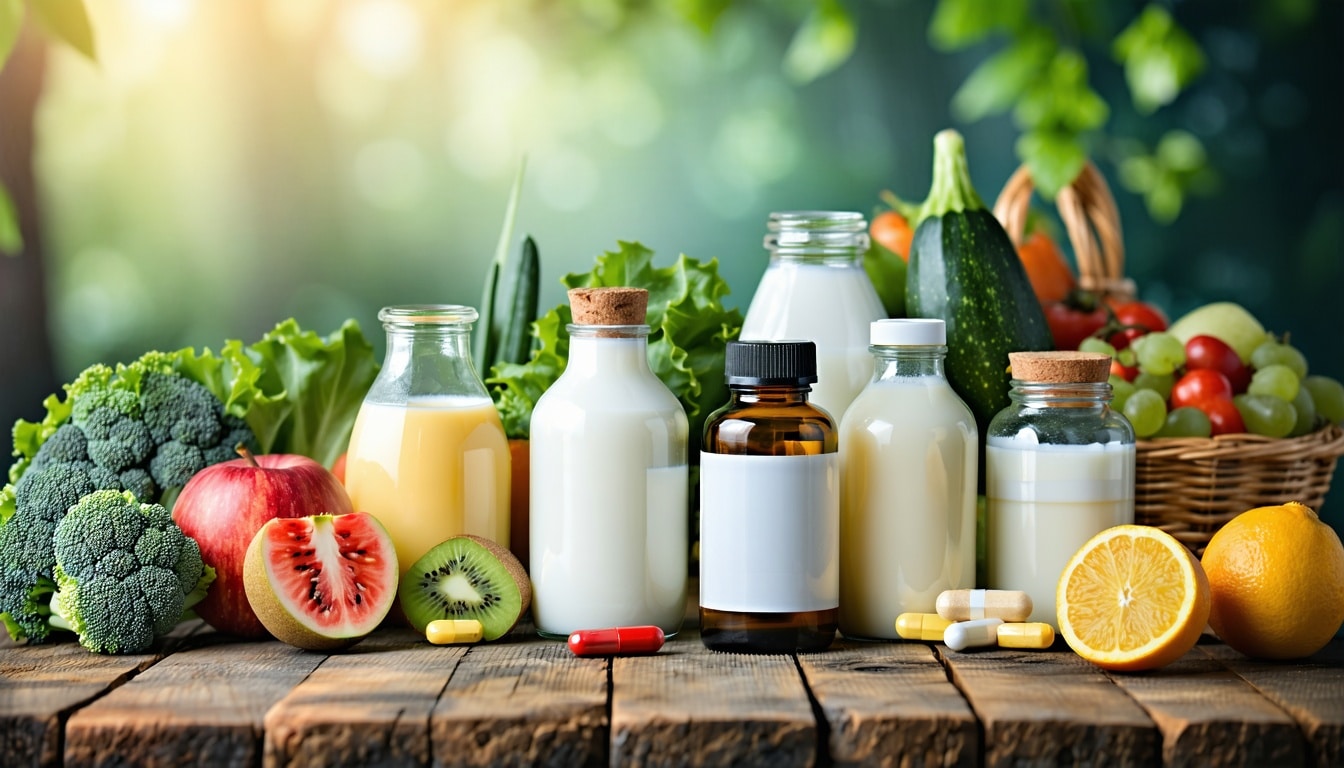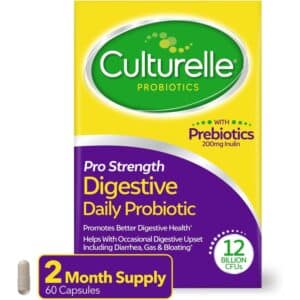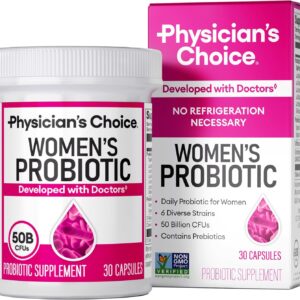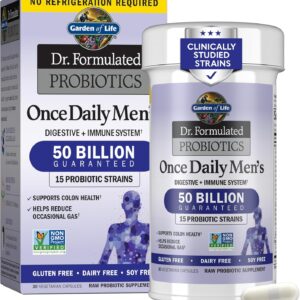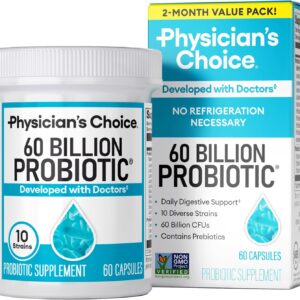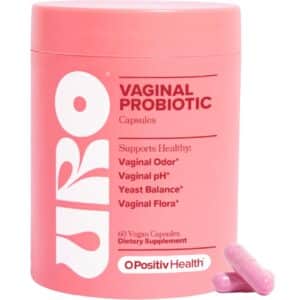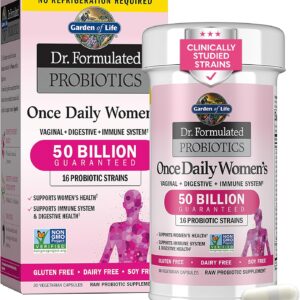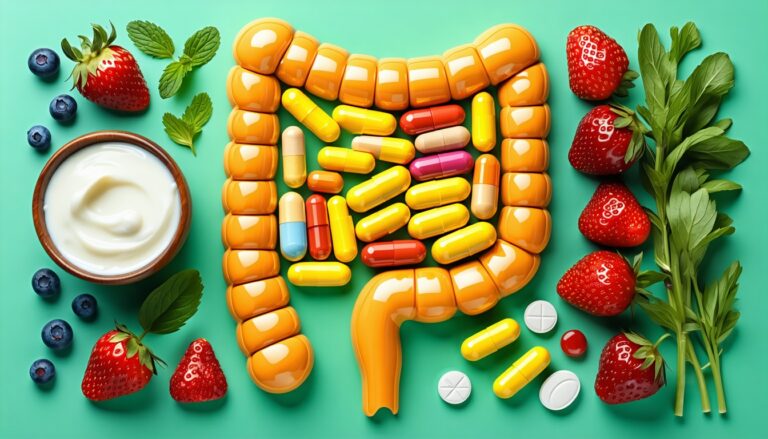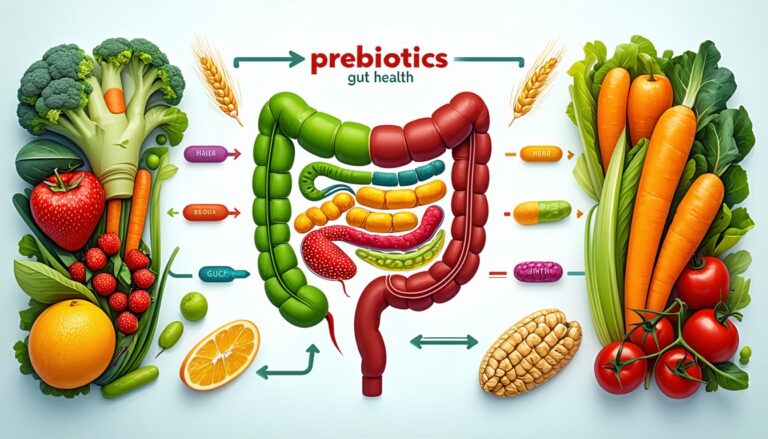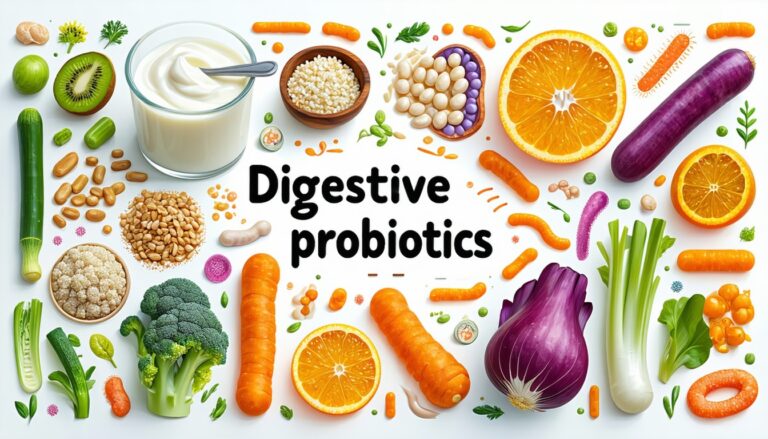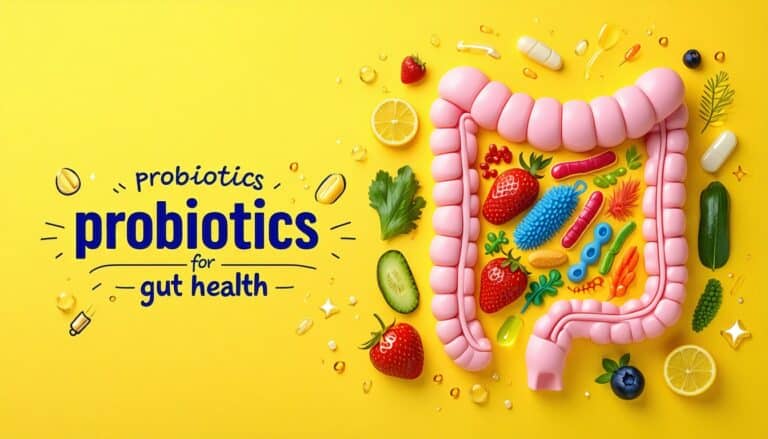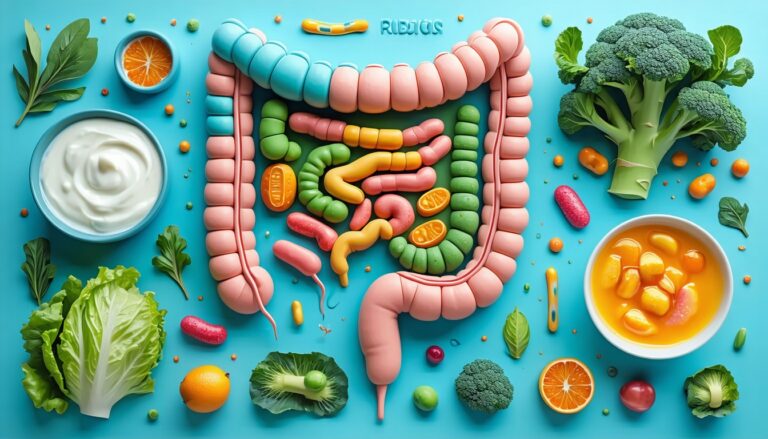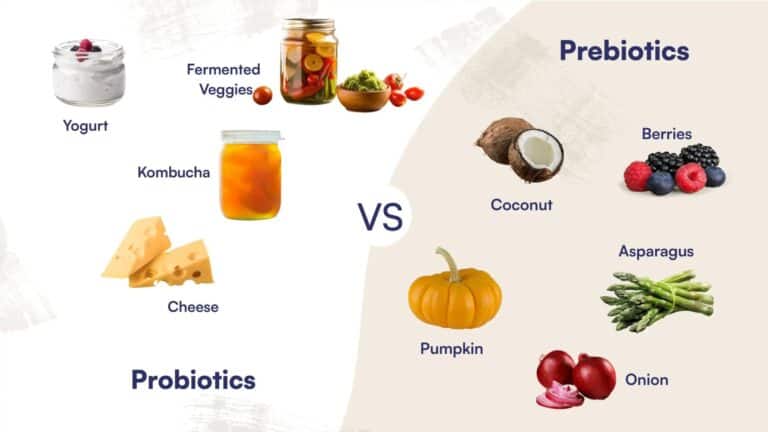Supplement Probiotic might sound like a trendy buzzword, but it’s actually one of the most impactful tools you can use to upgrade your digestion and overall wellness. This article explores how probiotics work, the various strains that deliver specific health benefits, and how you can choose the right one for your lifestyle. Whether you’re battling gut issues, supporting your immune system, or just want clearer skin and sharper thinking, understanding probiotics is the first step toward a healthier you.
Understanding Probiotics
Definition of Probiotics
Probiotics are the little helpers your body needs! They’re live microbes, mainly good bacteria, but sometimes friendly yeasts too. You might have heard of them lurking in your cup of yogurt or stashed in supplements. The secret of probiotics lies in having enough of them to really pack a punch health-wise. Remember, not every supplement labeled “probiotic” delivers the goods. Here’s a quick breakdown:
| What’s Inside | What It Means |
|---|---|
| Live Microorganisms | Your probiotic pals are good bacteria and yeasts that bring health benefits. |
| Enough to Matter | You need a decent amount to kick-start those benefits. |
| Health Boost | Probiotics strive to make your gut happy and, in turn, your whole self better. |
Mechanisms of Action
These nifty microorganisms work their magic mainly in your digestive system. They’re like your gut’s best friend, aiding the native bacteria and keeping everything in balance. Here’s what they do:
- Shutting Down the Bad Guys: Probiotics outcompete harmful microorganisms, keeping your tummy troubles at bay.
- Making Awesome Byproducts: They produce goodies that help your gut health remain tip-top.
- Changing Acid Levels: By tweaking the acidity in your gut, they keep bad bacteria in check.
- Strengthening Gut Defenses: Probiotics help ensure your gut’s barriers stay strong, heading off pesky problems like leaky gut.
- Vitamin Production: They lend a hand in making vitamins that your body uses to thrive.
- Upping Digestive Enzymes: So you can munch down your meals with increased ease.
Different probiotics do different jobs, so picking the right ones can make all the difference. Learning how these tiny champions operate helps you decide if they’re a fit for fortifying your diet, especially when aiming for better digestive and gut health. Investing in products with proven perks can really amp up your wellness routine.
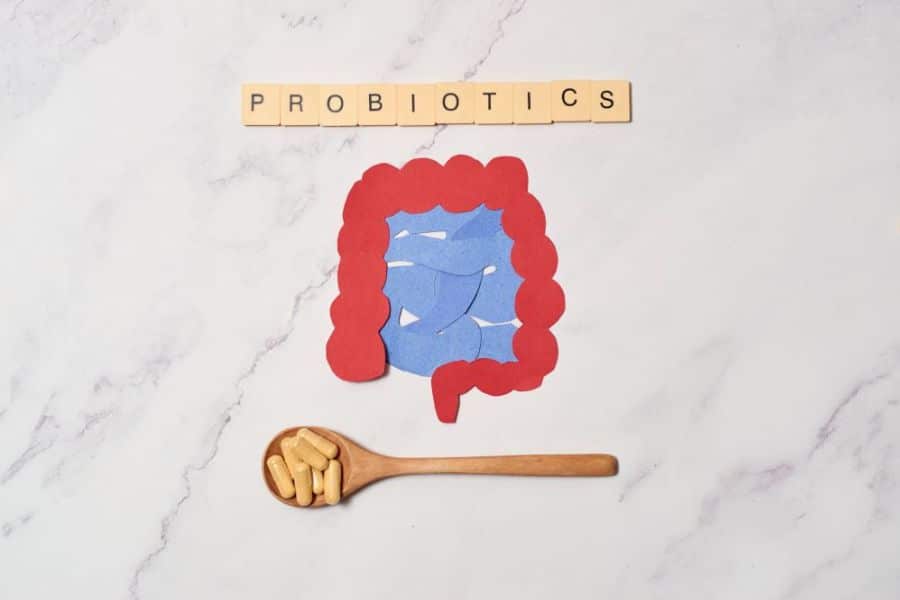
Health Benefits of Probiotics
Got gut problems or just looking to boost your wellness game? Probiotics might be your new best friend. They pack a punch with loads of health perks influencing different parts of your body. Let’s see how these little good guys can shake things up.
Gut Health Effects
When it comes to gut health, probiotics are like the A-team. They introduce friendly bacteria into your system that can fix the balance of your gut’s ecosystem. Having tummy troubles like constipation, diarrhea, or bloating? Probiotics could be the cavalry you need. They might even fine-tune digestion and help your body grab more nutrients from food. Want more details? Head over to our articles on probiotics for gut health and digestive probiotics.
| Gut Health Perks | What’s in it for you? |
|---|---|
| Knocks Gut Bugs into Shape | Keeps your tummy’s bacterial rock band playing in harmony |
| Tames the IBS Monster | Takes the crankiness out of irritable bowel syndrome |
| Increases Nutrient Snagging | Makes sure your body doesn’t miss those vital goodies |
Immune System Benefits
Feeling under the weather too often? Probiotics might have something to say about that. They coach your immune response like a boss, teaching it to pick out the bad guys from the good, and strengthen your body’s border defense. Since a huge chunk of your immune cells hang out in the gut, maintaining a friendly bacterial crowd can really amp up your body’s defense squad. Curious? Dive into our probiotics immune system piece for more.
| Immune Kickstanders | What’s in it for you? |
|---|---|
| Souped-Up Defense | Ramps up your body’s pathogen-fighting skills |
| Anti-Bad-Germ Fighter | Helps your body whip up stuff to tackle infections |
| Chill on the Inflammation | Eases the annoying invader response that weakens your body |
Mental Health and Cognitive Effects
Tuning into your emotions and brainy stuff, probiotics play a low-key yet powerful role. Ever heard of the “gut-brain axis”? It’s a big deal. Probiotics might ease your mood blues and could even lend a hand in reducing brain fog or forgetfulness. Fascinated? Our article on probiotics for digestive health has a lot to say.
| Peace of Mind Perks | What’s in it for you? |
|---|---|
| Melts Anxiety Chills | May keep those worried thoughts at bay |
| Mood Maestro | Supports a better mind groove, good vibes included |
| Smart About Cognitive Issues | May help dodge some of the brain-aging issues |
Skin Health Benefits
If your skin’s giving you drama, check your gut gang. A topsy-turvy gut scene can lead to skin issues like acne or eczema. But with probiotics on your team, your skin barrier might feel less stressed and more protected. To learn more about this, check our articles on probiotics and digestive health and probiotics for upset stomach.
| Skin-Deep Enhancers | What’s in it for you? |
|---|---|
| Soothes Skin Outbreaks | Tackles pesky inflamed skin |
| Fends Off Skin Stress | Gives your skin that ‘you can do it!’ barrier boost |
| Cheers Up Your Complexion | Shoots for that clear-skin glow |
Weight Management Support
Thinking about trimming down or just keeping it in check? Probiotics may help navigate your waistline whispering to your gut about metabolism and weight. Some studies show they can slow the fat-stash and smooth out metabolic wrinkles. For more scoop, head to our article on probiotic supplements for gut health.
| Weight Maneuvering Motions | What’s in it for you? |
|---|---|
| Fat Busting Sidekick | May help put the brakes on fat stash |
| Metabolic Helper | Could give your body some calorie-burning pep |
| Inflammation Butterfly | Reduces swelling bugs that mess with your weight |
Adding high-quality probiotics into your day-to-day jam can be a game changer, making life easier with a happy gut and overall mojo.
Types of Probiotics
Deciding on a supplement probiotic can feel a bit like picking out your new favorite ice cream flavor—it’s a personal choice but understanding the types makes it easier. Let’s chat about Bacillus, Lactobacillus, and Bifidobacterium probiotics, those tiny helpers that could make a big difference.
Bacillus Genus
Think of the Bacillus genus as the tough guy. These probiotics are known for holding their own against tough environments. They don’t mind a bit of heat or drying, making them a staple in many supplements. They’re like the ones that run through rain and come out looking unfazed (Healthline).
| Strain | Benefits |
|---|---|
| Bacillus coagulans | Keeps your belly happy and might help curb diarrhea. |
| Bacillus subtilis | Gives a boost to digestion and makes sure you’re soaking up those nutrients. |
Perfect for the laid-back folks—these don’t mind skipping the fridge.
Lactobacillus Strains
Lactobacillus strains are sort of the rock stars of the probiotic scene. They’ve got fans everywhere—from your stomach to your urinary tract. Take L. acidophilus, it’s like the band that’s been around forever and still selling out shows thanks to its benefits for digestion and gut wellness (Cleveland Clinic).
| Strain | Benefits |
|---|---|
| Lactobacillus acidophilus | Helps digest your grub and keeps your gut buddies balanced. |
| Lactobacillus rhamnosus | Puts a stop to antibiotic-fueled diarrhea and helps pump up your immune system. |
For anyone wanting to keep their stomach cheering, Lactobacillus strains are a classic pick.
Bifidobacterium Varieties
Think of Bifidobacterium as your gut’s peacekeepers. They’re all about maintaining harmony within the gut flora, offering benefits that even protect little ones from some serious conditions (NIH Office of Dietary Supplements).
| Strain | Benefits |
|---|---|
| Bifidobacterium bifidum | Has your immune system’s back and keeps digestion on track. |
| Bifidobacterium lactis | Smooths out digestive kinks and gives your immune system some extra armor. |
Pick what’s best based on your personal health hurdles. Whether it’s for a happier belly or a shielded immune system, these probiotics tick the right boxes.
Getting the scoop on different probiotics is your first step to feeling better. If you’re ready for a deep dive into how they can specifically help, check out our posts on probiotics for gut health and digestive probiotics.
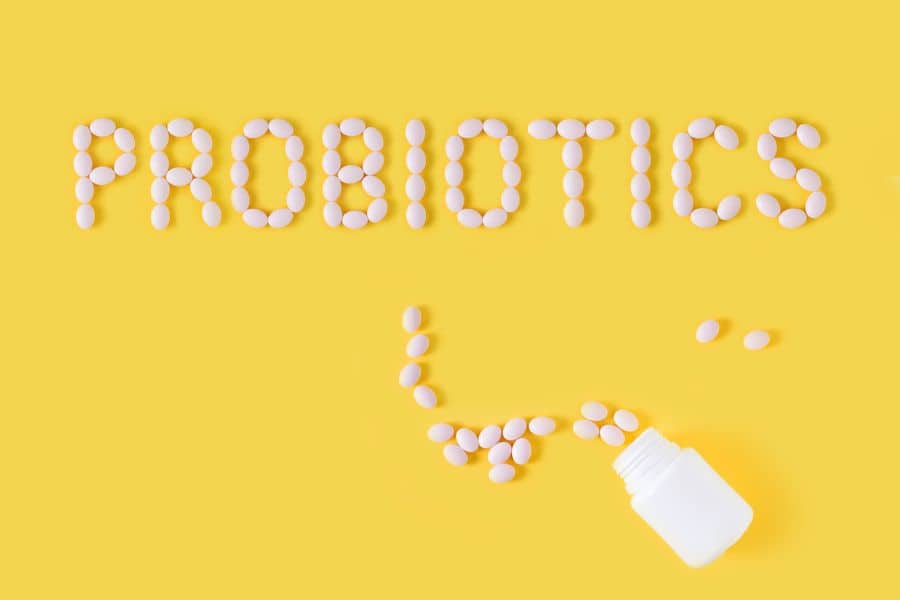
Using Probiotics Effectively
Getting the most out of probiotics can be a game-changer for your gut health. Let’s break down some essential tips on keeping them fresh, taking them right, using them with antibiotics, and staying safe.
Storage and Shelf Life
The way you store probiotics is like keeping milk fresh—don’t mess it up. Peep the label to see if your little helpers need chilling or if they like to hang at room temp. Here’s a quick recap:
| Storage Type | Example Strains/Products | Notes |
|---|---|---|
| Room Temp Friendly | Bacillus kind | No sweat storing in your kitchen cupboard. |
| Fridge Fans | Lactobacillus and Bifidobacterium strains | They’re comfy in the fridge, so keep ’em cool. |
Some probiotic packs come packed in ice. Yup, they mean business—keep those cold to keep ’em kicking. And don’t let them languish past their prime; 1-2 years post-purchase is the sweet spot for effectiveness (Healthline).
Proper Administration
How and when you pop your probiotics spices up how well they work. Here’s the scoop:
- Timing: Chow down these goodies with your meal or right after to soak them up without a tummy tantrum.
- Hydration Station: Guzzle plenty of water to help them slide on through and do their magic.
- Do It Daily: Make probiotics your new habit for the best shot at turning your gut into a happy place.
Got gas or feel bloated after starting? Chill—your body’s just getting cozy with new friends. These minor woes usually fade away (WebMD).
Probiotics and Antibiotics
Yes, they can play nice with antibiotics! Antibiotics throw a blanket party, killing bacteria everywhere, good or bad. Here’s how to keep the peace:
- Timing’s Key: Toss back probiotics a couple of hours before or after antibiotics. This way, your antibiotics won’t crash your probiotic party (Digestive Health Supplements Probiotics).
- Check-In: Always get the green light from your doc before pairing them up, so everyone’s on the same page about your health needs.
Safety Considerations
Probiotics are generally safe houseguests, but don’t skip these pointers:
- Health Check: If your immune system’s not the best or you’ve got health issues, give your doctor a holler before starting.
- Keep an Eye Out: If discomfort persists beyond the first handshake, tap your doc on the shoulder (WebMD).
- Quality First: Only go for reputable brands to ensure you get the good stuff. Grab the scoop on picking the best ones from our top probiotic picks.
Mastering your probiotic game with these tips can put you on the fast track to stellar gut health and feeling great. Need more deets? Dig into our reads on probiotics for gut health and digestive probiotics for more savvy gut chat.
Specific Health Conditions and Probiotics
Thinking about giving probiotics a whirl to tackle some health issues? You’re on the right path! Understanding how these tiny warriors work will help you decide if a probiotic supplement fits into your lifestyle. Below, we dig into some common conditions where probiotics show promise.
Irritable Bowel Syndrome (IBS)
Got a grumpy gut that throws a tantrum over everything? Probiotics could be the hero you’ve been waiting for. Research hints that certain probiotic strains can help ease bloating, gas, and those all-too-predictable irregular bowel parties. People who’ve embraced probiotics often report calmer tummies. But remember, a quick chat with your healthcare guru can help you figure out the most suitable strains.
| Probiotic Strain | What’s Good |
|---|---|
| Lactobacillus plantarum | Cuts down on gas and bloating vibes |
| Bifidobacterium lactis | Gets your bowels moving smoothly |
Find out more about how probiotics can soothe your gut woes on our digestive health page.
Inflammatory Bowel Disease (IBD)
Living with inflammatory bowel diseases like Crohn’s or ulcerative colitis? Probiotics might just be your gut’s new BFF. Research suggests they can help keep troublesome flare-ups at bay and support remission by taming inflammation and cozying up your immune system.
| Probiotic Strain | Gut-Friendly Benefit |
|---|---|
| Saccharomyces boulardii | Might ease flare-up symptoms |
| Lactobacillus rhamnosus | Keeps remission on track |
Shoot your doc a message to chat about the best probiotic supplements for gut health that suit your groove.
Skin Conditions
If your skin’s been throwing hissy fits similar to eczema rashes, probiotics might help smooth things over. Some studies show these supplements can enhance the skin’s ability to stay hydrated and less itchy by fortifying the skin barrier and kicking out pesky bacteria.
| Condition | Probiotic Perks |
|---|---|
| Eczema | Boosts skin moisture and eases itchiness |
Consider adding probiotics to your skincare arsenal for an extra boost. Check out how probiotics can take your skin game up a notch.
Urinary Tract Infections
Dodging another dreaded UTI? Probiotics could lend a hand. They help keep the urinary tract eco-friendly by crowding out the villains responsible for infections.
| Probiotic Strain | Pros for Your Pipes |
|---|---|
| Lactobacillus rhamnosus | Cuts down on repeat UTI offenses |
| Lactobacillus reuteri | Balances urinary tract flora nicely |
If UTIs are knocking on your door too often, tossing in some probiotics—whether from foods or supplements— might be worth a shot. Our probiotics and gut health insights could be your next stop.
Every gut and condition can be its own quirky puzzle—connect with your healthcare advisor before diving into new supplements. With the right strains on your side, probiotics could help tame those health gremlins and boost your vibe.
Probiotics and Atopic Dermatitis
Probiotics in Children
Thinking about probiotics for your kiddo? These friendly bacteria might be more helpful than you think, especially when it comes to keeping their skin in check and shielding them from pesky atopic dermatitis. Studies have shown that probiotics, when given to moms during pregnancy and after birth, could help in slashing the chances of this skin nightmare popping up. But here’s the scoop: not all probiotics are created equal. Strains such as Lactobacillus rhamnosus and Lactobacillus paracasei are the all-stars here, really stepping up their game against this skin issue. Others like Lactobacillus reuteri or Lactobacillus acidophilus? Not so much. They kinda miss the mark in this department (NIH Office of Dietary Supplements).
Reduction in Symptoms
Got a little one dealing with atopic dermatitis? Probiotics might just lessen the blow of those symptoms too. One study mash-up (meta-analysis) showed that when kids, ages 6 months to 9 years, were given probiotics, their dermatitis woes saw a noticeable dip. But, the secret sauce depends on the strain. Some delivered big wins, others were not such a big deal (NIH Office of Dietary Supplements).
| Probiotic Strain | Effect on Atopic Dermatitis |
|---|---|
| Lactobacillus rhamnosus | Big improvements |
| Lactobacillus paracasei | Big improvements |
| Lactobacillus reuteri | Meh, didn’t do much |
| Lactobacillus acidophilus | Meh, didn’t do much |
So, when you’re on a mission to boost your little one’s skin health, picking the right probiotic is half the battle. Always make sure to get a doc’s thumbs-up before trying out new supplements, especially when battling conditions like atopic dermatitis. Want the 411 on probiotics for a happy belly too? Swing by our reads on probiotics for gut health and digestive probiotics.
Final Thoughts
Probiotics are not one-size-fits-all. With different strains offering targeted benefits—like easing digestive discomfort, supporting mental clarity, or clearing up skin—picking the right supplement probiotic is essential. The key is consistency, choosing high-quality strains, and understanding your body’s unique needs. Whether you’re seeking relief from IBS or hoping to prevent recurring UTIs, this gut-friendly guide empowers you to make smarter choices and harness the full power of your microbiome. When in doubt, consult your healthcare provider to tailor your probiotic routine safely and effectively.
Frequently Asked Questions (FAQ)
What exactly is a supplement probiotic?
A supplement probiotic is a product—typically in capsule, tablet, or powder form—that contains live beneficial microorganisms such as bacteria and yeast. These microbes aim to improve gut flora balance, aiding digestion, immunity, and even mood and skin health.
Are all probiotics the same?
Not at all. Different strains of probiotics provide different benefits. For instance, Lactobacillus acidophilus helps with digestion, while Bifidobacterium lactis supports the immune system. It’s essential to choose strains based on your specific health goals.
Do probiotics help with conditions like IBS or eczema?
Yes, research supports the use of certain probiotic strains in managing IBS symptoms (like bloating and irregular bowel movements) and skin issues such as eczema. Strains like Lactobacillus plantarum and Lactobacillus rhamnosus have shown promise.
Can I take probiotics while on antibiotics?
Yes, but timing is crucial. Take probiotics a couple of hours before or after antibiotics to prevent the antibiotics from killing the beneficial bacteria. Always consult your doctor before combining them.
Do probiotics need to be refrigerated?
Some do, especially strains like Lactobacillus and Bifidobacterium. Others, like Bacillus strains, are shelf-stable. Always check the storage instructions on the label.
How long does it take for probiotics to work?
Results vary by individual and health condition. Some people notice improvements within a few days, while others may need several weeks of consistent use. Minor side effects like bloating may occur initially as your gut adjusts.
Are probiotics safe for children?
Generally, yes—but the strain and dosage must be appropriate. Some strains, like Lactobacillus rhamnosus, are shown to reduce the risk of atopic dermatitis in children. Always consult a pediatrician before starting probiotics in kids.
